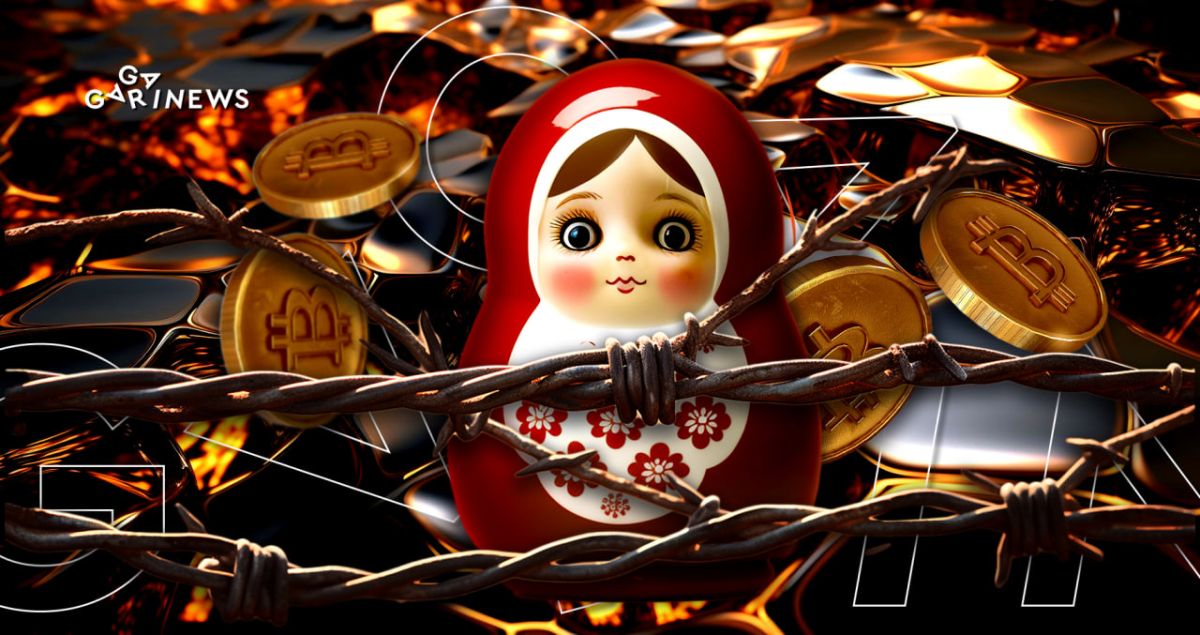Sanctioned Rosbank Introduces Cross-Border Crypto Payments

Rosbank, a major player in the Russian banking system, has begun executing cross-border crypto transactions. As of early June, the bank has carried out test transactions with both corporate and individual clients. This innovation aims to sidestep Western sanctions intended to halt Russia’s conflict with Ukraine.
On this page
Efforts to limit Russia's access to funding have been ongoing since February 2023. The European Union, the United Kingdom, the United States, and Canada have frozen the assets of the Russian Central Bank. Additionally, major Russian banks have been barred from the international SWIFT financial system.
Over a year has passed, and Rosbank has found a way to facilitate its international transactions through the use of cryptocurrency payments. Rosbank's new service is facilitated by the B-crypto platform, which specializes in cross-border transactions. But how exactly does this arrangement circumvent Western sanctions?
Russian businesses are negotiating with overseas counterparts to fulfill their financial obligations through cryptocurrency. Russian importers deposit fiat currency into their Rosbank accounts, which then transfers it to B-crypto. The platform converts these funds into cryptocurrency and sends it to the supplier's crypto wallet. Alternatively, the customer's cryptocurrency is converted into rubles by B-crypto, then funneled into the accounts of Russian exporters at Rosbank. It's noteworthy that the Russian press emphasizes the procurement of cryptocurrencies from countries that maintain amicable relations with Russia.
This strategy signifies a pioneering development within the Russian financial market. Despite the government's open acknowledgment that businesses have been employing cryptocurrencies for foreign trade for quite a while, this method continues to be unofficially sanctioned. However, the Russian Central Bank has not protested the use of cryptocurrency for cross-border transactions taking place outside Russia's financial infrastructure.
The Central Bank, on the other hand, opposes the unregulated use of cryptocurrencies domestically. For example, the “Digital Financial Assets” law strictly forbids residents from using cryptocurrencies for the payment of goods or services. The potential legalization of virtual assets is currently only being contemplated within the confines of a trial legal regime.
Interestingly, today, more than half of Russia's cross-border payments are not conducted in dollars or euros, which have come to be known as “toxic” currencies within the country. Last year, these currencies facilitated about 80% of international money transfers. The Chinese yuan has become a crucial lifeline for Russian foreign economic activities. The Russian public, likewise, prefers to convert their depreciated rubles, often referred to as “wooden,” for this currency.
In a recent conversation with GNcrypto, Yevhenii Panchenko, Head of the Cyber Police Department of the National Police of Ukraine, disclosed that Ukraine is making substantial efforts to persuade partner countries to incorporate cryptocurrency operations into their sanction mechanisms against Russia. If this were to happen, utilizing cryptocurrencies for transactions with Russia would become illicit, leading to legal implications for the participants of such financial operations.
The content on The Coinomist is for informational purposes only and should not be interpreted as financial advice. While we strive to provide accurate and up-to-date information, we do not guarantee the accuracy, completeness, or reliability of any content. Neither we accept liability for any errors or omissions in the information provided or for any financial losses incurred as a result of relying on this information. Actions based on this content are at your own risk. Always do your own research and consult a professional. See our Terms, Privacy Policy, and Disclaimers for more details.


























